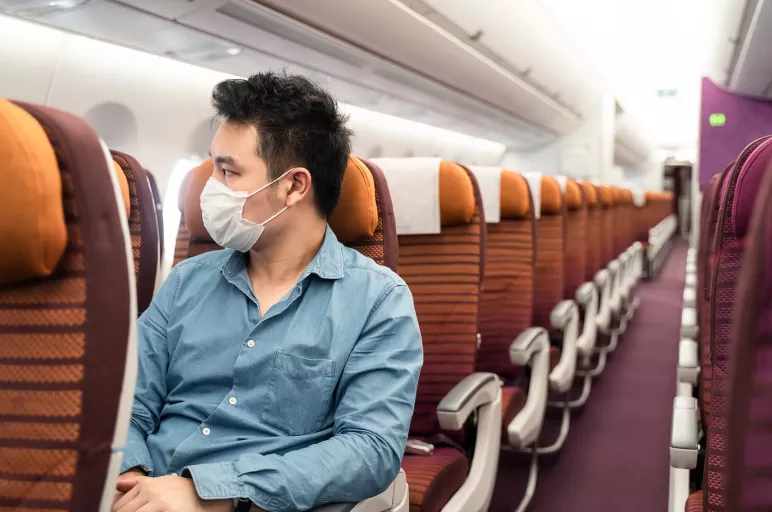
How to Manage Post-Covid Business Travel Spend
- Travel buyers should consider future-focused changes to save more
- They can renegotiate deals, seek new requirements from suppliers
- This is also an apt time to explore latest tech to optimize travel spend
March 27, 2021 | Procurement Strategy
“Over 50% of business travel will go away”.
Bill Gates recently made this prediction about the future of corporate trips once the COVID-19 pandemic is brought under control.
But what does this statement mean for travel managers? Is it really gloomy, or is it alerting them to the reshaping of business travel 2021 onwards?
It is common sense that travel managers have never been so challenged as they were during the peak of the pandemic.
Data shows itineraries purchased by corporations were significantly down -- close to 95-98% in 2020 -- as compared to the same period in 2019.
These changes will impact how companies address their travels guidelines in 2021 and beyond.
In the pre-Covid-19 era, employees had to obtain approval from only their line managers to travel domestically or internationally.
Now, senior management or members of the executive committee are involved in the authorization of all business trips.
There are differences in the approach, but a survey with travel managers across different industries, 84% said their companies were allowing only essential travelling.
While demand for airlines, hotels, and events has plummeted, the number of virtual meetings and virtual events have shot up -- a trend that is likely to stay.
Additionally, ‘duty of care’ and ‘traveler satisfaction’ have become two highly rated corporate travel priorities in 2021, above savings and cost control and supplier management.
Opportunities for travel spend optimization
With the pandemic, travel priorities have changed, and it is only natural to see businesses absorbing the new trends.
Companies would need to reevaluate their travel policies and make adequate changes like prioritizing virtual meetings and supplying travelers with health kits.

Recognizing the new trend, corporate travel buyers could renegotiate existing agreements and issue new requirements to preferred suppliers.
They will also have to closely assess the impact of COVID-19 on overall travel needs to determine long-term strategies.
Many could also look to seek flexible cancellations and last-minute changes, which are way more prevalent now.
In this downtime for business travel, companies should also explore new technologies and apply artificial intelligence towards booking and spending.
While these technologies were already available, most companies did not fully implement them because of the disruption this could bring in the operations. This intermission brought about by the pandemic can be a great opportunity for trials and implementation of new technologies like optimized booking and virtual cards.
What to do now to better manage business travel?
While travel safety will remain a priority through 2021 and beyond, travel managers should consider the impact of future-focused changes they can make now to better position their companies to innovate and potentially save more money with small shifts instead of big, systemic changes.
For example, protecting the environment and reducing carbon footprint of travelers will be a mandatory step for all companies in a few years.
Also, implementing an automated system to track future travel makes more sense for innovative companies that see the importance of being trendsetters for their consumers.
Reducing environmental impact
Customers today value carbon-neutral activity.
Amazon, Microsoft, and JetBlue are among the companies that have pledged to be in some sort of carbon neutrality. Starbucks has pledged 50% by 2030, while Amazon pledged 100% by 2040.
As the trend expands, more airlines and ride-sharing services are likely to join the pledge.
Choosing a carbon neutral travel partner makes it easy for companies to reach their sustainability goals too.
Using AI and blockchain
Fast internet on flights, AI, virtual assistants, and automated processes will be available to all passengers soon. High-speed internet on flights will push productivity.
AI will customize whole trips -- from cab rides to airport to accommodation -- stopping overpriced purchases by business travelers.
AI will also support personalization of rooms or seats according to a company’s or the business traveler’s preference.
Another breakthrough technology likely to be part of day-to-day travel planning in companies is blockchain. Blockchain is the security measure that makes it possible to record all transactions made to achieve a product/ service. It will also be a requirement when thinking about travel partners. Blockchain can improve safety and transparency for companies, where employees travel frequently.
Emerging business travel destinations
Projections say the BRICS grouping will surpass the current biggest economies as top destinations for businesses.
India is projected to become one of the top five business travel markets by 2022. Indonesia, for example, has surpassed South Korea in business travel spending in the last few years.
Companies need to be aware of these shifts to invest their scarce travels in potential markets.


As shown above, a travel management closer to the CEO, a smart travel program, advanced analytics and technology like AI and virtual assistants, processes automation and end-to-end solutions are the steps needed to be successful in the future.
Additional sources and references:
- https://skift.com/insight/skift-report-five-trends-transform-corporate-air-travel-retailing-2021/
- https://www.gbta.org/Portals/0/Documents/gbta-poll-key-highlights-20201119.pdf
- https://www.businesstravelnews.com/Management/Business-Travel-Has-Peaked-Heres-Our-Future
- https://financesonline.com/artificial-intelligence-statistics/



